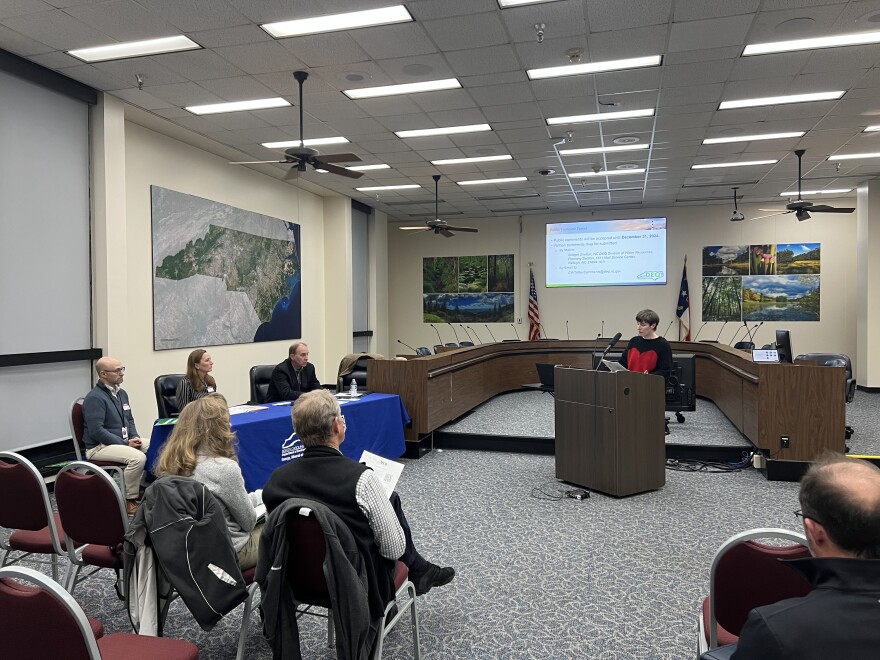Clean water advocates and private citizens are calling on state environmental officials to pass proposed groundwater standards for three toxic chemicals known as PFAS. They're also asking for more action.
"We need PFAS protections right now. This is a package that puts forward three and we will take that as a baby step, but we have to do more," said Emily Sutton, executive director of the Haw River Assembly.
Sutton spoke at a public hearing in Raleigh Tuesday night.
The North Carolina Department of Environmental Quality (DEQ) held three public hearings in Charlotte, Wilmington, and Raleigh. The meeting in Wilmington drew the biggest crowd, with about 15 speakers.
Groundwater and surface water become drinking water. DEQ estimates half of the drinking water in North Carolina comes from groundwater. In April, the EPA established federal drinking water standards for eight PFAS.
Clean water advocates like Sutton say passing state level standards for groundwater and surface water will help protect public health and will make it affordable to enforce the federal drinking water standards.
Public comment remains open until Dec. 31. The proposed standards could be in place by July 2025.
DEQ originally proposed groundwater rules for 8 PFAS
In North Carolina, the Environmental Management Commission (EMC) is the only authority that can establish permanent water standards.
Earlier this year, DEQ asked the EMC's Groundwater & Waste Management Committee to move forward with proposed groundwater standards for eight kinds of PFAS. The committee decided to only move forward with three: PFOS, PFOA and GenX. These are three PFAS that are currently under consideration.
In September, committee chairman Joe Reardon argued the group made this decision to protect public health.
"What (DEQ) proposed was allowing more of these compounds in the water than is currently regulated at the PQL," Reardon previously explained, referring to existing lab-based groundwater standards called practical quantitative limits.
"So it was the decision of the committee to regulate the three here, but allow DEQ to continue to regulate the other five at the lesser levels, which is outlined by the PQL. What we didn't want to do was raise the amount of these compounds that could be in the water."
DEQ staff has previously stated some of the proposed standards were higher than existing PQLs because research shows those levels would not cause harm to human health.
Interim groundwater standards currently in effect
In July, DEQ received a request from a private citizen in Graham asking the state to establish interim groundwater standards for eight PFAS — the same eight PFAS DEQ originally proposed regulating.
According to state rules, any person can ask DEQ to establish interim groundwater standards for substances that don't already have such standards.
After holding a public comment period, those interim standards went into effect in mid-October, and will stay in place for at least 12 months.
Regulations for surface water still in committee
DEQ is also working with EMC to establish surface water regulations for PFAS. However, efforts for those regulations are still stuck in EMC's Water Quality Committee.
Clean water advocates contend some EMC members are blatantly stalling the standards.







